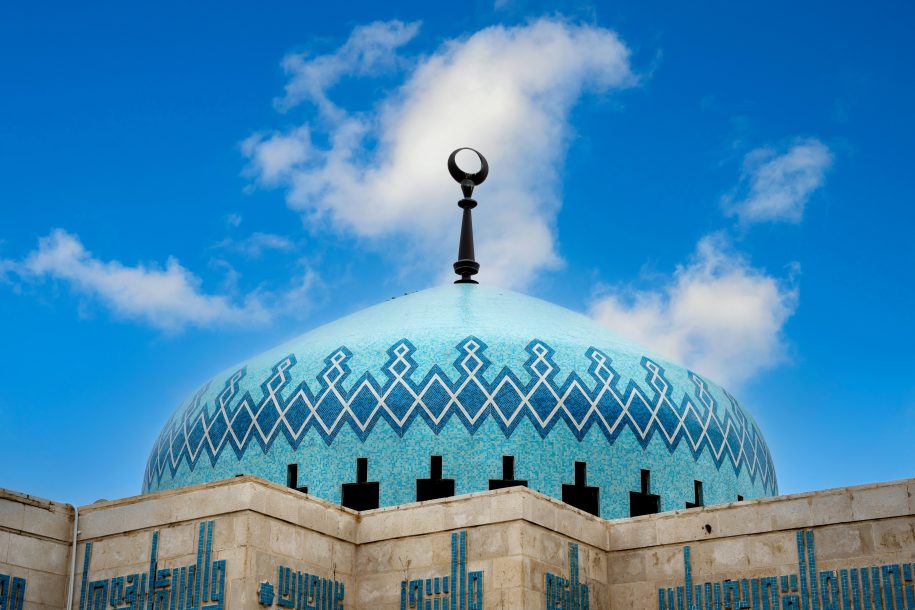The majority of the population in Jordan practices Islam, and it is the country’s official religion. The Constitution of Jordan recognizes Islam as the state religion and guarantees freedom of religion for all citizens. The majority of Muslims in Jordan belong to the Sunni branch of Islam, which follows the teachings and traditions of the Prophet Muhammad and the four rightly guided caliphs.
Within the Sunni Islam practiced in Jordan, there are different schools of thought, with the Maliki school being the most prevalent. The Maliki school is one of the four major Sunni schools of Islamic jurisprudence and is known for its emphasis on local customs and traditions.
In addition to Sunni Islam, there are also small religious minorities in Jordan. Christians make up a significant minority, with various Christian denominations represented, including Greek Orthodox, Roman Catholic, and Protestant communities. Other religious minorities in Jordan include the Druze and Bahá’í communities.
Jordan is known for its religious diversity and interfaith harmony. The country has a long history of welcoming and protecting religious minorities, and it is home to several important religious sites revered by Muslims, Christians, and Jews. These include the Al-Masjid Al-Haram in Makkah and the Al-Aqsa Mosque in Jerusalem, both of which hold immense religious significance for Muslims.
Overall, while Islam is the predominant religion in Jordan, the country is home to a diverse religious landscape, and people of different faiths coexist peacefully, fostering a spirit of religious tolerance and understanding.
The main religion in Jordan is Islam, and the majority of the population adheres to Sunni Islam. It is estimated that around 93-95% of Jordanians are Muslims. Islam plays a significant role in the country’s culture, customs, and daily life. Mosques are central to the religious and social life of the community, and the Islamic calendar and religious practices shape the rhythm of the society. There is also a small Christian minority in Jordan, primarily belonging to various Christian denominations such as Greek Orthodox, Roman Catholic, and Protestant. The country is known for its religious tolerance, and people of different faiths coexist peacefully in Jordan.
Jordan has a predominantly Muslim population, with Islam being the dominant religion in the country. The majority of Jordanians are adherents of Sunni Islam, which follows the teachings and traditions of the Prophet Muhammad and the four major Sunni schools of thought (Hanafi, Maliki, Shafi’i, and Hanbali). The Maliki school is the most commonly followed in Jordan.
Islam plays a significant role in Jordanian society, culture, and daily life. Mosques serve as centers for worship, community gatherings, and religious education. Friday is the weekly day of congregational prayer, and it holds particular importance for Muslims.
Jordan is also home to important Islamic sites that attract visitors and pilgrims from around the world. The city of Petra, a UNESCO World Heritage Site, has historical significance and contains remnants of Islamic architectural influences. The Jordan Valley holds religious significance as well, with various sites associated with stories from Islamic history.
The country’s legal system is influenced by Islamic law, and Sharia courts handle matters related to personal status, such as marriage, divorce, and inheritance, for Muslims in Jordan.
While Islam is the dominant religion, Jordan is known for its religious tolerance and respect for other faiths. The country also has Christian communities, including Greek Orthodox, Roman Catholic, and Protestant denominations. Interfaith dialogue and coexistence are promoted, contributing to a harmonious religious atmosphere in the country.
Overall, Islam plays a central role in the religious and cultural fabric of Jordan, shaping many aspects of daily life and societal norms. However, the country embraces religious diversity and promotes peaceful coexistence among different religious communities.


Leave a Reply